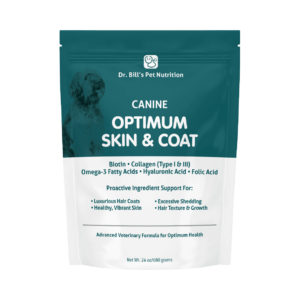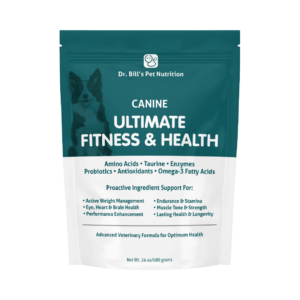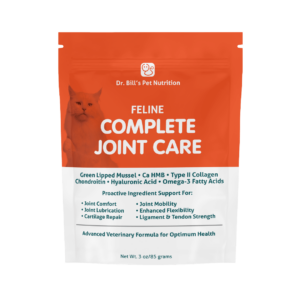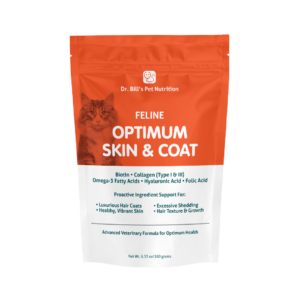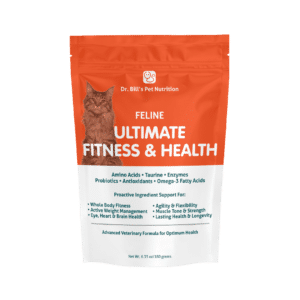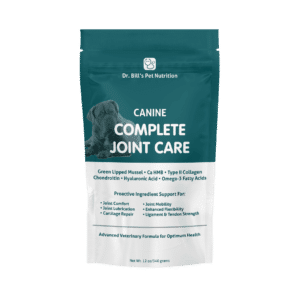
Omega-3 Fatty Acids (Fish Oil)
The Omega-3 fatty acid series begins with alpha linolenic acid (ALA). The dog and cat find it difficult to synthesize n-3 fatty acids. They must come from either the diet or through supplementation. In order for Alpha linolenic acid to be converted to the key n-3 fatty acids Eicosapentaenoic acid (EPA) and Docosahexaenoic acid (DHA) specific desaturase and elongase enzymes must be available. These enzymes are considered insufficient in the dog early in life and for the most part lacking in the cat.
Marine plants and animals (algae, certain fish, krill and squid) are all able to convert ALA to EPA and DHA and are therefore the best direct dietary or supplemental sources of EPA and DHA for the dog and cat.
Functions of Omega-3 Fatty Acids:
• Anti-inflammation
• Anti-Platelet Aggregation (reduced clot formation)
• Vasodilation
• Non-immunosuppressive
• Retinal development
• Brain development
EPA is primarily incorporated into the heart, blood plasma and prostate tissues. It is also present in cholesterol, triglycerides and phospholipids. DHA is one of the most abundant components of structural lipids in the brain and is essential for brain development and function during fetal development and in the growing dog and cat. DHA is also present in blood plasma, phospholipids, the heart, prostate and rods of the eye.
Omega 3 fatty acids are incorporated into cell membrane phospholipids where they are converted to eicosanoids that facilitates decreased production of prostaglandin E2 metabolites (a potent inflammatory agent) and thromboxane A2 (a potent platelet aggregator and vasoconstrictor). Omega 3 fatty acids lead to a decrease in leukotriene B4 (a potent chemotaxic agent and an inducer of inflammation) resulting in immunomodulation.
Once n-3 fatty acids are incorporated into the membrane phospholipids, these polyunsaturated fatty acids exhibit many additional biological functions, such as:
• Altering membrane fluidity
• Signal transduction
• Gene expression
• Hepatic lipogenesis inhibition
• Fatty acid oxidation in the liver
• Decreased triglyceride levels in the blood
NEW
Subscribe & Save
Save 10% On Auto Deliveries
Shop Now
